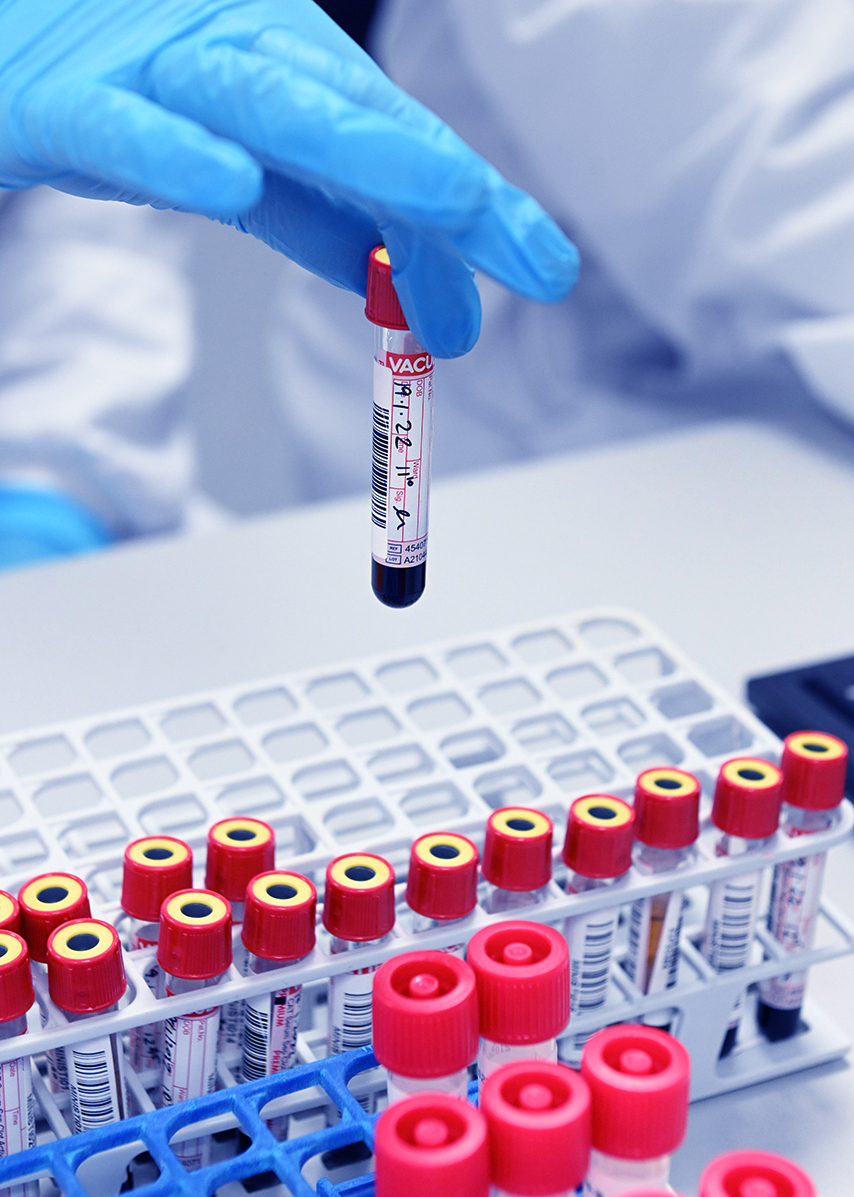Destruction of the bile ducts results in raised alkaline phosphatase, sometimes in the absence of a raised bilirubin. A coinciding increase in GGT level indicates that ALP is most likely liver in origin rather than bone – a marked raised GGT and raised alkaline phosphatase is suggestive of cholestasis but could also indicate early primary biliary cirrhosis.
Alkaline Phosphatase (ALP)

Alkaline Phosphatase (ALP)
Alkaline Phosphatase (ALP) is an enzyme most commonly originating in the liver and bone. Alkaline Phosphatase is most useful in diagnosing cholestatic liver diseases. Alkaline Phosphatase (ALP) is usually one of a group of tests used to investigate the health of the liver.
Increased ALP levels
Levels vary with age with isolated high levels often seen during childhood and adolescence due to the rapid velocity of bone growth and development. Substantially isolated raised levels of ALP> 100% the upper limit of normal are due to bone causes (Pagets disease, osteomalacia, primary bone tumour, metastases) rather than hepatic or biliary pathology.
ALP is not usually raised in multiple myeloma or in osteoporosis unless there is the presence of a fracture. The most common causes of extrahepatic cholestasis are stones or strictures in the common bile duct (uncomplicated or complicated with biliary pancreatitis or acute cholangitis), primary sclerosing cholangitis and malignancy causing obstruction (due to the presence of a neoplasm at the head of the pancreas, gallbladder or bile duct).
Intrahepatic cholestasis is usually due to primary biliary cirrhosis, primary biliary cholangitis, cholestasis of pregnancy, drug induced, alcoholic hepatitis or infiltrative diseases (TB, sarcoidosis, lymphoma, amyloidosis). Patients with PBC or primary biliary cholangitis usually have elevated ALP levels and normal bilirubin levels. Mild and stably elevated ALP up to 50% ULN is often seen in the elderly and may be of bony or hepatic origin but does not require further investigation in the absence of relevant clinical findings. Other causes of raised ALP are seen in hyperparathyroidism, renal failure, heart failure or lymphoma. A raised ALP is a normal finding in the third trimester of pregnancy, produced by the placenta.
Low levels of ALP
Low levels are uncommon. They may be a sign of a lack of zinc, malnutrition, pernicious anaemia, thyroid disease, Wilson disease or hypophosphatasia, a rare genetic disease that affects bones and teeth.
Case Study
Delivering True Innovation
Our Services




5mL venous serum or plasma
Enfer Medical
Tests/Assays
Enfer Medical offers colorimetric technology for the quantitative assay for Alkaline phosphatase (ALP). This test is CE-IVD certified.


Patient
Request Form
For clients using the Enfer Medical Client Portal, the Enfer Medical Patient Request Form (PRF) will be generated when you have completed your “Test Request” within the portal linked below.
Please note that samples suspected of containing high risk pathogens such as Mycobacterium tuberculosis should be clearly identified on the form and packed separately from other samples.



Results are available next working day.
This assay is available seven days a week.
Packaging
The packaging/preparation of samples for delivery to the laboratory are required to be in adherence to all national regulations for the safe transport of biological materials. HSE guidance can be reviewed HERE.
There are specific packaging instructions and labelling requirements requiring triple packaging including:
- Primary leak-proof container – tube or vial containing the sample.
- Secondary watertight container, with absorbent material, intended to protect the primary container.
- Outer container protects the secondary container.
- Patient Request forms must be placed between the secondary container and the outer shipping container.
Further information on the packaging/preparation of samples for delivery to the laboratory is contained within the Enfer Medical Laboratory User Manual which clients are provided with.


Storage & Stability
Specimens must be tested within 7 days of collection and stored at 2-8°C.


Samples
In addition to the packaging of samples, the transport/delivery of clinical samples to the laboratory is required to be in adherence to all national regulations for the safe transport of biological materials. Enfer Medical provides a fully compliant logistics service, aligned with clients’ testing requirements.
Prompt transport of specimens:
To ensure prompt testing of samples and release of results within the published test turnaround times, samples should arrive to the laboratory by 18:00. Test turnaround time is measured from receipt of the sample at the laboratory until the time the authorised results are reported to users.
of Samples
In rare cases specimens may not be suitable for testing on arrival to the laboratory. In that case the sample will be rejected at the receipt stage and the service user will be notified immediately and an explanation as to why the sample could not be processed will be provided. Reasons why samples cannot be processed include but are not limited to:
- Samples received beyond the stability limits and/or not at the correct temperature indicated for each test.
- Incorrect sample type received.
- Leaking samples, sample not received or sample insufficient for analysis as stated below within sample requirements.
- Non-compliant samples or request forms i.e. those missing sample date information, missing sample test request and/or missing sample site/type information.
- Samples received without the necessary patient identifiers.
Our Services




Quantitative results for Alkaline Phosphatase (ALP) are reported in numeric value in U/L. Please contact us for more information on the reference ranges used at Enfer Medical.
Accessing
Your Results
Following receipt at the Laboratory, results should be available on the next working day and will be reported to the referring clinician via the Enfer Medical Client Portal or in a format agreed with clients.
Established clients can login to the portal using the link above.




